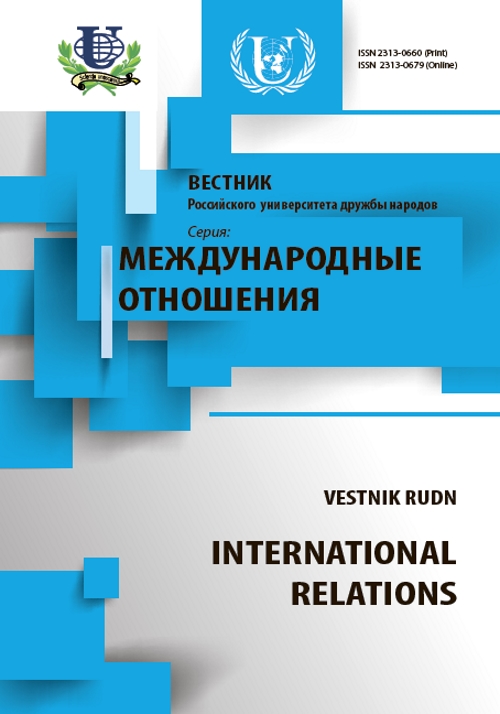Twiplomacy: Impact of Twitter Social Network on Diplomacy
- Authors: Torrealba A.A1
-
Affiliations:
- Peoples’ Friendship University of Russia
- Issue: Vol 15, No 3 (2015): International Political Science. Conflict Studies. Greater Middle East
- Pages: 152-166
- Section: ARTICLES
- URL: https://journals.rudn.ru/international-relations/article/view/10720
- ID: 10720
Cite item
Full Text
Abstract
The article examines the phenomenon of Twitplomacy and its influence on the foreign policy of the countries of the world in recent years. Actual Facts show that Twitter has become an innovative tool of public diplomacy and has changed the perception of how the diplomacy works. Now, citizens and politicians in many countries have the opportunity to know instantly about international political events and also communicate with others ones to share opinions about these events. But apart from that, Twitter can be evaluated in quantitative terms. The opinion of active Twitter users worldwide can be measured to create surveys related to the popular support for world leaders. It is an alternative to develop statistics for understanding the citizens’ political preferences that even have already been used by certain private organizations to design rankings of international governance. At the same time, world leaders, politicians and diplomats realized the benefits of several services of Twitter to have close relationships with their voters. But the political and strategic value of Twitter is ambiguous. It seems that Twitter brings more benefits to some states than others. The level of technological development in some countries determines the degree of influence of this social network on the public opinion. Undoubtedly, thanks to Twitter, the relationship between social networks and diplomacy has become a modern phenomenon, which shows that social networks can play an important role in keep peace between nations.
Keywords
About the authors
Alfredo A Torrealba
Peoples’ Friendship University of Russia
Email: segulac@gmail.com
Department of Theory and History of International Relations
References
Supplementary files










